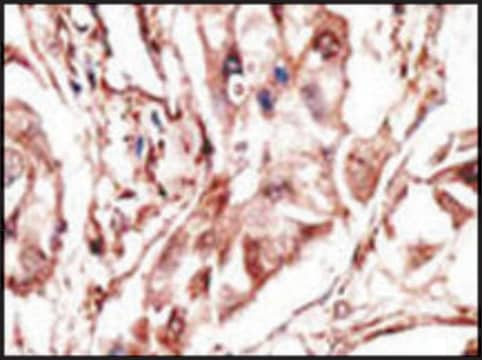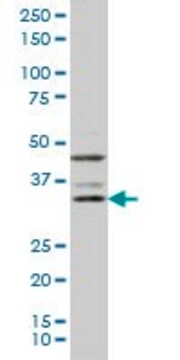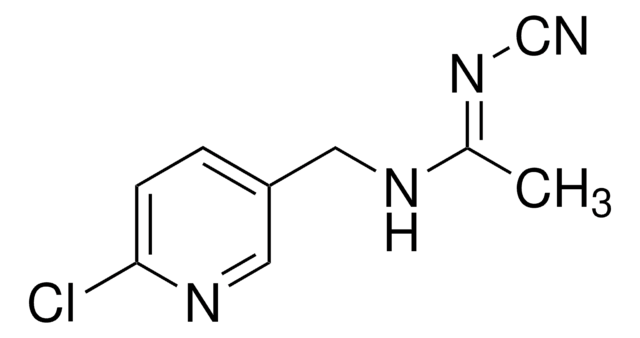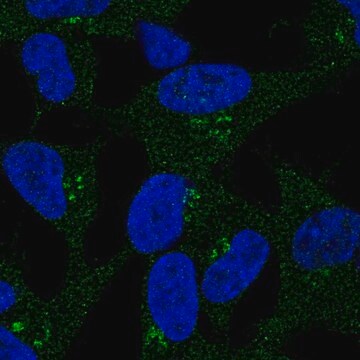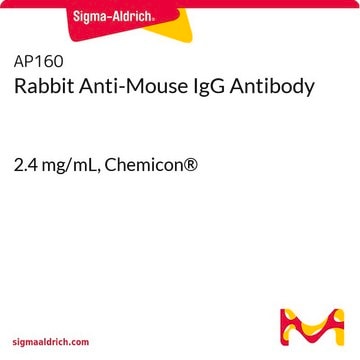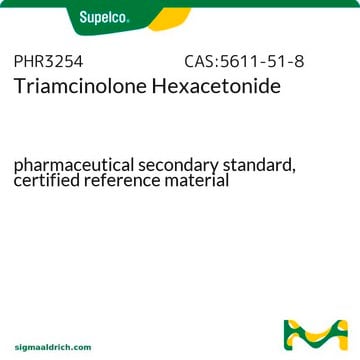General description
Dickkopf-related protein 2 (UniProt: Q9UBU2; also known as Dickkopf-2, DKK2, Dkk-2, hDkk-2) is encoded by the DKK2 (also known as UNQ682/PRO1316) gene (Gene ID: 27123) in human. DKK2 is a member of the Dickkopf family that is expressed in heart, brain, skeletal muscle, and lung. It is synthesized with a signal peptide (aa 1-33) that is subsequently cleaved off in the mature form. DKK2 is reported to antagonize canonical Wnt signaling by inhibiting LRP5/6 interaction with Wnt and by forming a ternary complex with the transmembrane protein KREMEN that promotes internalization of LRP5/6. Its C-terminal cysteine-rich domain mediates its interaction with LRP5 and LRP6. It plays play an important role in vertebrate development, where it locally inhibits Wnt regulated processes such as antero-posterior axial patterning, limb development, somitogenesis and eye formation. DKK2 secreted by tumor cells is shown to act on cytotoxic lymphocytes and inhibit STAT5 signaling by blocking STAT5 nuclear localization via LRP5, independent of LRP6. Loss of DKK2 is reported to activate natural killer (NK) cells and CD8+ T cells in tumors that can delay tumor progression and enhance the effects of PD-1 blockade. (Ref.: Xiao, Q., et al. (2018). Nat. Med. 24(3): 262-270).
Specificity
Clone 5F8 specifically detects human Dickkopf-related protein 2. It targets an epitope with in 15 amino acids from the N-terminal region.
Immunogen
KLH-conjugated linear peptide corresponding to 15 amino acids from the N-terminal region of human Dickkopf-2 protein.
Application
Anti-DKK2, clone 5F8, Cat. No. MABC1102, is a mouse monoclonal antibody that detects Dickkopf-related protein 2 and has been tested for use in ELISA, Inhibits Activity/Function, and Western Blotting.
Inhibits Activity/Function Analysis: A representative lot inhibited DKK2-mediated, but not DKK1-mediated, antagonism of Wnt activation. (Xiao, Q., et. al. (2018). Nat Med. 24(3):262-270).
ELISA Analysis: A representative lot detected DKK2 in ELISA applications (Xiao, Q., et. al. (2018). Nat Med. 24(3):262-270).
Research Category
Apoptosis & Cancer
Quality
Evaluated by Western Blotting in human heart tissue lysates.
Western Blotting Analysis: A 1:250 dilution of this antibody detected DKK2 in human heart tissue lysates.
Target description
~38 kDa observed; 28.45 kDa calculated. Uncharacterized bands may be observed in some lysate(s).
Physical form
Format: Purified
Protein G purified
Purified mouse monoclonal antibody IgG1 in PBS without azide.
Storage and Stability
Stable for 1 year at -20°C from date of receipt. Handling Recommendations: Upon receipt and prior to removing the cap, centrifuge the vial and gently mix the solution. Aliquot into microcentrifuge tubes and store at -20°C. Avoid repeated freeze/thaw cycles, which may damage IgG and affect product performance.
Other Notes
Concentration: Please refer to lot specific datasheet.
Disclaimer
Unless otherwise stated in our catalog or other company documentation accompanying the product(s), our products are intended for research use only and are not to be used for any other purpose, which includes but is not limited to, unauthorized commercial uses, in vitro diagnostic uses, ex vivo or in vivo therapeutic uses or any type of consumption or application to humans or animals.
